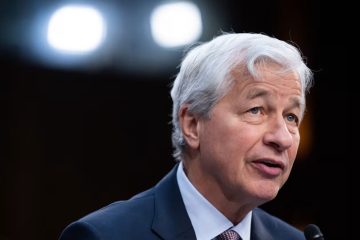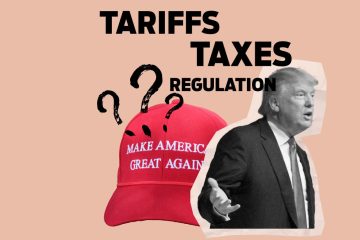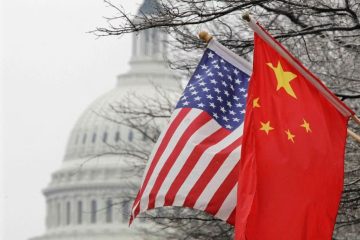Legal questions arise on Musk’s DOGE efforts

Prior to President Trump’s inauguration, legal analysts expressed doubt regarding his intentions to establish a Department of Government Efficiency under Elon Musk’s leadership, aimed at independently reducing the federal bureaucracy’s scale. In the fortnight since his return to the White House, inquiries have intensified, culminating in a significant escalation with the administration’s effective suspension of the U.S. Agency for International Development.
Is it feasible for the administration to successfully terminate USAID?
Since its inception in 1961, USAID has implemented foreign assistance programs, gaining independent agency status in 1998 through Congressional action, while maintaining a close relationship with the State Department. The prospect of Trump and Musk successfully eliminating the agency by integrating it into the State Department, absent legislative endorsement, appears exceedingly improbable. The events of recent days fall short of expectations, casting certain actions of the administration into a nebulous realm. The agency’s headquarters was shuttered on Monday, significantly impairing its operations and communications. Officials from DOGE pursued access to the agency’s systems during the weekend.
According to Matthew Kavanagh, director of the Center for Global Health Policy and Politics at Georgetown University, the Trump administration views USAID as a preliminary platform to assess potential actions and identify obstacles. USAID engages extensively with government contractors, enjoying greater latitude in its interactions with them compared to government employees. It also possesses some flexibility to halt expenditures and place employees on temporary leave.
However, a complete rejection by Trump to allocate the agency’s foreign-aid funds would directly conflict with a federal statute from the Nixon administration, specifically the Impoundment Control Act of 1974, which mandates that the president must obtain congressional approval to withhold discretionary expenditures. Brian Riedl, previously a Republican Senate aide and now affiliated with the conservative Manhattan Institute, posits that the president’s reform of USAID has precipitated a potential constitutional crisis. “The president is unable to retract the funding,” he stated.
Certain legal scholars argue that the president possesses greater latitude in managing expenditures concerning national security and foreign affairs. U.S. presidents, tracing back to Thomas Jefferson, who suspended funding for gunboats tasked with patrolling the Mississippi River, have engaged in the practice of impounding allocated funds. The chief legal advisor to Trump at the Office of Management and Budget contends that the 1974 impoundment law imposes unconstitutional restrictions on the president’s authority to oversee and direct the executive branch. A legal confrontation on the matter may be imminent.
What is the basis of DOGE’s authority? What is the origin of this phenomenon?
Trump initiated the creation of DOGE via an executive order on his first day in office, designating Musk’s organization as a provisional government entity. The president achieved this by renaming and restructuring a pre-existing office within the executive branch. His directive indicated that DOGE would facilitate the realization of his agenda “by modernizing Federal technology and software to enhance governmental efficiency and productivity.” He directed agency leaders to collaborate with DOGE, while clarifying that the establishment of the new organization did not diminish the authority of existing executive departments or agencies. Another directive indicated that DOGE would play a part in transforming the federal workforce.
Unresolved inquiries persist regarding the individuals behind DOGE, their specific roles and responsibilities, as well as the mechanisms of its funding. Prior to assuming office, Trump established the group as a consultative body. Vivek Ramaswamy, co-chair of DOGE, has departed from the initiative, alongside Bill McGinley, who was appointed by Trump as DOGE’s legal counsel in December. On Monday, the White House announced that Musk is designated as a “special government employee,” allowing him to serve at the White House for 130 days without the necessity of submitting financial-disclosure forms mandated for standard White House staff. However, his position also prompts inquiries regarding potential conflicts of interest, as his involvement with DOGE may advantage his commercial ventures, notably Tesla and SpaceX.
Is it possible for Trump to utilize DOGE as a means to reduce the size of the federal government?
Previous administrations, notably those of Ronald Reagan and Bill Clinton, instituted advisory bodies focused on reducing expenditure or enhancing governmental efficiency; however, the frameworks and objectives of these bodies diverged significantly from those of DOGE. In 1982, Reagan convened over 100 private-sector leaders with the objective of “draining the swamp” in Washington. The entity referred to as the Grace Commission put forth over 2,400 recommendations, encompassing suggestions to reevaluate the safeguards in place for government employees. A significant number of the recommendations remained unexecuted.
In stark contrast, Trump is collaborating with Musk to orchestrate substantial financial and structural reforms within the government over the coming weeks and months. The initiative garnered unexpected support from law enforcement on Monday, courtesy of Ed Martin, the interim U.S. attorney in Washington, appointed by Trump. “I request that you engage my team and me to aid in safeguarding the DOGE initiative and its contributors,” Martin articulated in a public correspondence to Musk. “Any threats, confrontations, or actions that affect their work could potentially violate multiple laws.”
Legal analysts indicated that Trump appears to be on firm legal footing in the establishment of DOGE and its utilization, provided that Musk acts solely as an adviser rather than a decision-maker. “The president seeking counsel from external sources poses no inherent issue,” stated Saikrishna Prakash, a law professor at the University of Virginia with a focus on executive powers. The president has the authority to instruct agencies to collaborate with that adviser. Prakash noted that there may be legal constraints regarding privacy, national security, and computer access that could restrict Musk and DOGE’s access to information.
What legal limits is DOGE exploring?
Setting aside inquiries into the structural aspects of DOGE, certain legal authorities suggest that its actions to date could potentially contravene federal legislation. In a notable development, the Office of Personnel Management has introduced a “deferred resignation” package aimed at approximately two million federal employees. Those who consent to resign by February 6 will receive compensation through September 30, 2025, as part of a DOGE-backed initiative.
Nicholas Bednar, a law professor at the University of Minnesota, indicated that this offer could potentially contravene the Administrative Leave Act of 2016, which imposes restrictions on the conditions under which federal employees may be placed on leave. Bednar noted that an additional legal obstacle may arise from the Anti-Deficiency Act, which stipulates that the federal government is prohibited from committing to expenditures beyond the appropriations sanctioned by Congress. According to Bednar, the government’s funding, which extends only until March, renders the proposal to cover salaries until September seemingly in contravention of established regulations.
On Monday, a coalition of labor unions initiated legal action against the Treasury Department, claiming it had improperly granted DOGE access to a payment system containing personal and financial information of millions of Americans. The plaintiffs asserted their intention to obtain a court order aimed at ceasing the “systematic, continuous, and ongoing violation of federal laws designed to safeguard the privacy of personal information found in federal records.” DOGE faced a series of lawsuits shortly after Trump’s inauguration, claiming violations of a 1972 law that mandates transparency for advisory committees to the executive branch. This law requires such committees to convene publicly and ensure a balanced representation of viewpoints.
With Trump’s formal integration of DOGE into governmental affairs, certain legal experts suggest that those cases may lack relevance. Kel McClanahan, an attorney involved in one of the cases, asserted that the litigation remains “still 100% valid” until a court establishes that each individual claiming to work for DOGE is indeed an employee of the government entity referenced in the executive order.










